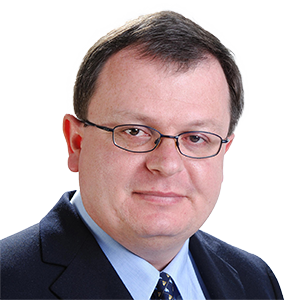On 29 November 2024, the National Health Commission (NHC), the Ministry of Commerce (MOFCOM), the National Administration of Traditional Chinese Medicine and the National Bureau of Disease Control and Prevention jointly released the Pilot Working Program to Expand the Opening-up in the Sector of Wholly-owned Hospitals (《独资医院领域扩大开放试点工作方案》) (the Program).
This follows our previous article on the Notice on Carrying Out Pilot Programs to Expand the Opening-up in the Healthcare Sector, which was jointly released by MOFCOM, NHC and the National Medical Products Administration on 8 September 2024 (the Notice, please see our previous article through this link: China further opens up its healthcare sector to foreign investors | Global law firm | Norton Rose Fulbright). The Program provides detailed implementation rules for the Notice regarding the opening-up in the medical institutions sector, outlining specific conditions, requirements and approval procedures for establishing wholly foreign-owned hospitals (WFOE Hospitals) in nine pilot regions (the Pilot Regions, comprising Beijing, Tianjin, Shanghai, Nanjing, Suzhou, Fuzhou, Guangzhou, Shenzhen and Hainan).
According to the Program, to establish a WFOE Hospital, a foreign investor must meet the following qualification requirements:
- have direct or indirect experience in healthcare investment and management;
- be capable of providing internationally advanced hospital management concepts, models and service levels;
- be able to provide world leading medical technology and equipment; and
- be able to supplement or improve local medical service capabilities, technology and facilities, and improve the diversity of medical services.
WFOE Hospitals must abide by existing laws and regulations applicable to medical institutions, including without limitation, the Basic Healthcare and Health Promotion Law (《中华人民共和国基本医疗卫生和健康促进法》), China Biosecurity Law (《中华人民共和国生物安全法》), Data Security Law (《中华人民共和国数据安全法》), Regulations on the Administration of Medical Institutions (《医疗机构管理条例》) and Regulations on the Administration of Human Genetic Resources (《中华人民共和国人类遗传资源管理条例》). Additionally, the Program also stipulates that:
- WFOE Hospitals may operate as either for-profit or non-profit entities;
- A WFOE Hospital may be a general hospital, specialized hospital or rehabilitation hospital, and shall be classified as a Grade III hospital under China’s 3-tier hospital classification system;
- A WFOE Hospital must NOT:
- be a psychiatric hospital, infectious diseases hospital, haematology hospital, traditional Chinese medicine hospital, integrated traditional Chinese and western medicine hospital, or ethnic minority medicine hospital;
- have a haematology specialty department; or
- perform relatively high-risk diagnosis and treatment activities, including human organ transplant technology, human assisted reproductive technology, pre-natal screening and pre-natal diagnosis technology, psychiatric hospitalization, or experimental treatment using new tumor cell therapy technology, etc.;
- WFOE Hospitals may employ foreign physicians and health professional technicians as a short-term practice under relevant regulations1, provided that at least 50% of the management staff and healthcare personnel must be mainland Chinese nationals;
- the information management system of WFOE Hospitals must be connected to the local medical service supervision platform, with the server hosting all the electronic medical records and medical information located within mainland China; and
- qualified WFOE Hospitals may apply to join China’s basic medical insurance scheme according to the relevant requirements and procedures2, and are also encouraged to collaborate with commercial health insurance programs.
Applications for establishing a WFOE Hospital and obtaining the required practice licence are subject to preliminary review by the local municipal health authority and final approval from the provincial-level health authority in the relevant Pilot Region. The application process generally follows the provisions in the Interim Measures for the Administration of Medical Institutions in the Form of Sino-foreign Equity or Cooperative Joint Ventures (《中外合资、合作医疗机构管理暂行办法》) and the Notice on Adjusting the Approval Authority of Sino-foreign Joint Ventures and Cooperative Medical Institutions (《卫生部关于调整中外合资合作医疗机构审批权限的通知》).
Practice licences granted to WFOE Hospitals are valid for 5 years and may be renewed, if they remain qualified, by completing the relevant renewal formalities.
According to the Program, provincial-level health authorities in the Pilot Regions should develop local implementation plans by the end of December 2024. On 3 December 2024, the Tianjin Health Bureau and six other local authorities released the Notice on Carrying Out the Pilot Work on Expanding the Opening-Up of Wholly-owned Hospitals (《关于做好独资医院领域扩大开放试点工作的通知》), detailing local approval procedures and the authorities in charge in the local region. Local authorities in other Pilot Regions are expected to issue similar local rules soon.




